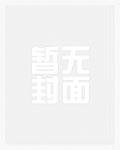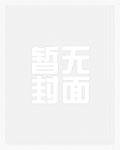搜索"luck or"找到的小说 (P1)
《The Joy Luck Club》 / 谭恩美 / 英文
Four mothers, four daughters, four families whose histories shift with the four winds depending on who's saying the stories. In 1949 four Chinese women, recent immigrants to San Francisco, begin meeting to eat dim sum, play mahjong, and talk. United in shared unspeakable loss and hope, they call themselves the Joy Luck Club. Rather than sink into tragedy, they choose to gather to raise their spirits and money. To despair was to wish back for something already lost. Or to prolong what was already unbearable. Forty years later the stories and history continue.With wit and sensitivity, Amy Tan examines the sometimes painful, often tender, and always deep connection between mothers and daughters. As each woman reveals her secrets, trying to unravel the truth about her life, the strings become more tangled, more entwined. Mothers boast or despair over daughters, and daughters roll their eyes even as they feel the inextricable tightening of their matriarchal ties. Tan is an astute storyteller, enticing readers to immerse themselves into these lives of complexity and mystery.
《The Joy Luck Club》 / 谭恩美 / 英文
Four mothers, four daughters, four families whose histories shift with the four winds depending on who's saying the stories. In 1949 four Chinese women, recent immigrants to San Francisco, begin meeting to eat dim sum, play mahjong, and talk. United in shared unspeakable loss and hope, they call themselves the Joy Luck Club. Rather than sink into tragedy, they choose to gather to raise their spirits and money. To despair was to wish back for something already lost. Or to prolong what was already unbearable. Forty years later the stories and history continue.With wit and sensitivity, Amy Tan examines the sometimes painful, often tender, and always deep connection between mothers and daughters. As each woman reveals her secrets, trying to unravel the truth about her life, the strings become more tangled, more entwined. Mothers boast or despair over daughters, and daughters roll their eyes even as they feel the inextricable tightening of their matriarchal ties. Tan is an astute storyteller, enticing readers to immerse themselves into these lives of complexity and mystery.
《The Joy Luck Club》 / 谭恩美 / 英文
Four mothers, four daughters, four families whose histories shift with the four winds depending on who's saying the stories. In 1949 four Chinese women, recent immigrants to San Francisco, begin meeting to eat dim sum, play mahjong, and talk. United in shared unspeakable loss and hope, they call themselves the Joy Luck Club. Rather than sink into tragedy, they choose to gather to raise their spirits and money. To despair was to wish back for something already lost. Or to prolong what was already unbearable. Forty years later the stories and history continue.With wit and sensitivity, Amy Tan examines the sometimes painful, often tender, and always deep connection between mothers and daughters. As each woman reveals her secrets, trying to unravel the truth about her life, the strings become more tangled, more entwined. Mothers boast or despair over daughters, and daughters roll their eyes even as they feel the inextricable tightening of their matriarchal ties. Tan is an astute storyteller, enticing readers to immerse themselves into these lives of complexity and mystery.
《The Joy Luck Club》 / 谭恩美 / 英文
Four mothers, four daughters, four families whose histories shift with the four winds depending on who's saying the stories. In 1949 four Chinese women, recent immigrants to San Francisco, begin meeting to eat dim sum, play mahjong, and talk. United in shared unspeakable loss and hope, they call themselves the Joy Luck Club. Rather than sink into tragedy, they choose to gather to raise their spirits and money. To despair was to wish back for something already lost. Or to prolong what was already unbearable. Forty years later the stories and history continue.With wit and sensitivity, Amy Tan examines the sometimes painful, often tender, and always deep connection between mothers and daughters. As each woman reveals her secrets, trying to unravel the truth about her life, the strings become more tangled, more entwined. Mothers boast or despair over daughters, and daughters roll their eyes even as they feel the inextricable tightening of their matriarchal ties. Tan is an astute storyteller, enticing readers to immerse themselves into these lives of complexity and mystery.
《Bad Luck》 / M_xylene / 同人衍生
倒霉蛋和倒霉蛋的不是很情愿的这样那样的故事
M_xylene
赛博朋克2077 - Vx原创角色 同人衍生 - BL - 短篇 - 完结
HE - 三观不正 - 高H
有强迫性关系,地位严重不对等,极度ooc,一款满足自己xp的产物,大概三分之二以上都是肉并且一方不太自愿,反复警告.jpg
《Bad Luck》 / M_xylene / 同人衍生
倒霉蛋和倒霉蛋的不是很情愿的这样那样的故事
M_xylene
赛博朋克2077 - Vx原创角色 同人衍生 - BL - 短篇 - 完结
HE - 三观不正 - 高H
有强迫性关系,地位严重不对等,极度ooc,一款满足自己xp的产物,大概三分之二以上都是肉并且一方不太自愿,反复警告.jpg
《阴阳手眼》作者是拉风熊猫LUCK。有婴初生,手纹有异,呈手眼之相。手眼之相,驱鬼御神,掌握天地之妙……一次公交偶遇“天眼”传人:叶子暄,我才知道自己的手纹竟然是“手眼”之相。在他的帮助下,我开启了“手眼”,之后怪事接踵而来,陆续遇到:养小鬼以增加自己寿命的邻居;拿上吊绳伪装成头绳诱惑别人的妖人;为修炼真元把人做成“丹蚕”的尸丹高手……这所有的事情竟然与一颗唐朝女皇武则天下葬时口中所含的黑色仙珠——“幽冥灵珠”有关……本以为找到真相就是结束,却发现仅仅只是开始——而这一切要从开始租房说起……
《阴阳手眼》作者是拉风熊猫LUCK。有婴初生,手纹有异,呈手眼之相。手眼之相,驱鬼御神,掌握天地之妙……一次公交偶遇“天眼”传人:叶子暄,我才知道自己的手纹竟然是“手眼”之相。在他的帮助下,我开启了“手眼”,之后怪事接踵而来,陆续遇到:养小鬼以增加自己寿命的邻居;拿上吊绳伪装成头绳诱惑别人的妖人;为修炼真元把人做成“丹蚕”的尸丹高手……这所有的事情竟然与一颗唐朝女皇武则天下葬时口中所含的黑色仙珠——“幽冥灵珠”有关……本以为找到真相就是结束,却发现仅仅只是开始——而这一切要从开始租房说起……
《阴阳手眼》作者是拉风熊猫LUCK。有婴初生,手纹有异,呈手眼之相。手眼之相,驱鬼御神,掌握天地之妙……一次公交偶遇“天眼”传人:叶子暄,我才知道自己的手纹竟然是“手眼”之相。在他的帮助下,我开启了“手眼”,之后怪事接踵而来,陆续遇到:养小鬼以增加自己寿命的邻居;拿上吊绳伪装成头绳诱惑别人的妖人;为修炼真元把人做成“丹蚕”的尸丹高手……这所有的事情竟然与一颗唐朝女皇武则天下葬时口中所含的黑色仙珠——“幽冥灵珠”有关……本以为找到真相就是结束,却发现仅仅只是开始——而这一切要从开始租房说起……
《The Bonesetter's Daughter》 / 谭恩美 / 英文
At the beginning of Amy Tan's fourth novel, two packets of papers written in Chinese calligraphy fall into the hands of Ruth Young. One bundle is titled Things I Know Are True and the other, Things I Must Not Forget. The author? That would be the protagonist's mother, LuLing, who has been diagnosed with Alzheimer's disease. In these documents the elderly matriarch, born in China in 1916, has set down a record of her birth and family history, determined to keep the facts from vanishing as her mind deteriorates.A San Francisco career woman who makes her living by ghostwriting self-help books, Ruth has little idea of her mother's past or true identity. What's more, their relationship has tended to be an angry one. Still, Ruth recognizes the onset of LuLing's decline--along with her own remorse over past rancor--and hires a translator to decipher the packets. She also resolves to ask her mother to tell her about her life. For once, she would ask. She would listen. She would sit down and not be in a hurry or have anything else to do.Framed at either end by Ruth's chapters, the central portion of The Bonesetter's Daughter takes place in China in the remote, mountainous region where anthropologists discovered Peking Man in the 1920s. Here superstition and tradition rule over a succession of tiny villages. And here LuLing grows up under the watchful eye of her hideously scarred nursemaid, Precious Auntie. As she makes clear, it's not an enviable setting:I noticed the ripe stench of a pig pasture, the pockmarked land dug up by dragon-bone dream-seekers, the holes in the walls, the mud by the wells, the dustiness of the unpaved roads. I saw how all the women we passed, young and old, had the same bland face, sleepy eyes that were mirrors of their sleepy minds.Nor is rural isolation the worst of it. LuLing's family, a clan of ink makers, believes itself cursed by its connection to a local doctor, who cooks up his potions and remedies from human bones. And indeed, a great deal of bad luck befalls the narrator and her sister GaoLing before they can finally engineer their escape from China. Along the way, familial squabbles erupt around every corner, particularly among mothers, daughters, and sisters. And as she did in her earlier The Joy Luck Club, Amy Tan uses these conflicts to explore the intricate dynamic that exists between first-generation Americans and their immigrant elders. --Victoria Jenkins
《The Bonesetter's Daughter》 / 谭恩美 / 英文
At the beginning of Amy Tan's fourth novel, two packets of papers written in Chinese calligraphy fall into the hands of Ruth Young. One bundle is titled Things I Know Are True and the other, Things I Must Not Forget. The author? That would be the protagonist's mother, LuLing, who has been diagnosed with Alzheimer's disease. In these documents the elderly matriarch, born in China in 1916, has set down a record of her birth and family history, determined to keep the facts from vanishing as her mind deteriorates.A San Francisco career woman who makes her living by ghostwriting self-help books, Ruth has little idea of her mother's past or true identity. What's more, their relationship has tended to be an angry one. Still, Ruth recognizes the onset of LuLing's decline--along with her own remorse over past rancor--and hires a translator to decipher the packets. She also resolves to ask her mother to tell her about her life. For once, she would ask. She would listen. She would sit down and not be in a hurry or have anything else to do.Framed at either end by Ruth's chapters, the central portion of The Bonesetter's Daughter takes place in China in the remote, mountainous region where anthropologists discovered Peking Man in the 1920s. Here superstition and tradition rule over a succession of tiny villages. And here LuLing grows up under the watchful eye of her hideously scarred nursemaid, Precious Auntie. As she makes clear, it's not an enviable setting:I noticed the ripe stench of a pig pasture, the pockmarked land dug up by dragon-bone dream-seekers, the holes in the walls, the mud by the wells, the dustiness of the unpaved roads. I saw how all the women we passed, young and old, had the same bland face, sleepy eyes that were mirrors of their sleepy minds.Nor is rural isolation the worst of it. LuLing's family, a clan of ink makers, believes itself cursed by its connection to a local doctor, who cooks up his potions and remedies from human bones. And indeed, a great deal of bad luck befalls the narrator and her sister GaoLing before they can finally engineer their escape from China. Along the way, familial squabbles erupt around every corner, particularly among mothers, daughters, and sisters. And as she did in her earlier The Joy Luck Club, Amy Tan uses these conflicts to explore the intricate dynamic that exists between first-generation Americans and their immigrant elders. --Victoria Jenkins
《The Bonesetter's Daughter》 / 谭恩美 / 英文
At the beginning of Amy Tan's fourth novel, two packets of papers written in Chinese calligraphy fall into the hands of Ruth Young. One bundle is titled Things I Know Are True and the other, Things I Must Not Forget. The author? That would be the protagonist's mother, LuLing, who has been diagnosed with Alzheimer's disease. In these documents the elderly matriarch, born in China in 1916, has set down a record of her birth and family history, determined to keep the facts from vanishing as her mind deteriorates.A San Francisco career woman who makes her living by ghostwriting self-help books, Ruth has little idea of her mother's past or true identity. What's more, their relationship has tended to be an angry one. Still, Ruth recognizes the onset of LuLing's decline--along with her own remorse over past rancor--and hires a translator to decipher the packets. She also resolves to ask her mother to tell her about her life. For once, she would ask. She would listen. She would sit down and not be in a hurry or have anything else to do.Framed at either end by Ruth's chapters, the central portion of The Bonesetter's Daughter takes place in China in the remote, mountainous region where anthropologists discovered Peking Man in the 1920s. Here superstition and tradition rule over a succession of tiny villages. And here LuLing grows up under the watchful eye of her hideously scarred nursemaid, Precious Auntie. As she makes clear, it's not an enviable setting:I noticed the ripe stench of a pig pasture, the pockmarked land dug up by dragon-bone dream-seekers, the holes in the walls, the mud by the wells, the dustiness of the unpaved roads. I saw how all the women we passed, young and old, had the same bland face, sleepy eyes that were mirrors of their sleepy minds.Nor is rural isolation the worst of it. LuLing's family, a clan of ink makers, believes itself cursed by its connection to a local doctor, who cooks up his potions and remedies from human bones. And indeed, a great deal of bad luck befalls the narrator and her sister GaoLing before they can finally engineer their escape from China. Along the way, familial squabbles erupt around every corner, particularly among mothers, daughters, and sisters. And as she did in her earlier The Joy Luck Club, Amy Tan uses these conflicts to explore the intricate dynamic that exists between first-generation Americans and their immigrant elders. --Victoria Jenkins
(第1/75页)
推荐阅读



